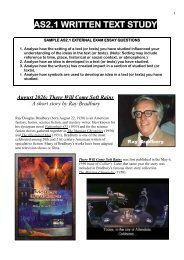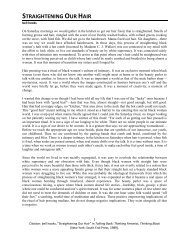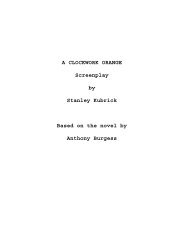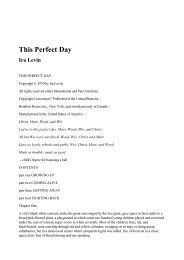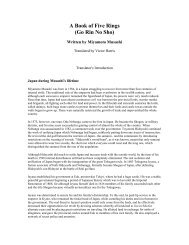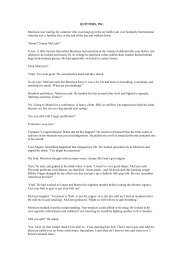You also want an ePaper? Increase the reach of your titles
YUMPU automatically turns print PDFs into web optimized ePapers that Google loves.
Falconer 61<br />
find a church. In the provincial cities and towns of Europe I attend<br />
the Roman Mass. I am a croyant—I detest the use of French words<br />
in English, but in this case I can think of nothing better—and as<br />
croyants I’m sure we share the knowledge that to profess exalted<br />
religious experience outside the ecclesiastical paradigm is to make<br />
of oneself an outcast; and by that I mean to hear the cruel laughter<br />
of those men and women to whom we look for love and mercy; I<br />
mean the pain of fire and ice; I mean the desolation of being<br />
buried at a crossroads with a stake through one’s heart. I truly<br />
believe in One God the Father Almighty but I know that to say so<br />
loudly, and at any distance from the chancel—any distance at all—<br />
would dangerously jeopardize my ability to ingratiate those men<br />
and women with whom I wish to live. I am trying to say—and I’m<br />
sure you will agree with me—that while we are available to<br />
transcendent experience, we can state this only at the suitable and<br />
ordained time and in the suitable and ordained place. I could not<br />
live without this knowledge; no more could I live without the<br />
thrilling possibility of suddenly encountering the fragrance of<br />
skepticism.<br />
“I am a prisoner. My life follows very closely the traditional lives of<br />
the saints, but I seem to have been forgotten by the blessed<br />
company of all faithful men and women. I have prayed for kings,<br />
presidents and bishops, but I have never once said a prayer for a<br />
man in prison nor have I ever heard a hymn that mentioned jail.<br />
We prisoners, more than any men, have suffered for our sins, we<br />
have suffered for the sins of society, and our example should<br />
cleanse the thoughts of men’s hearts because of the grief with<br />
which we are acquainted. We are in fact the word made flesh; but<br />
what I want to do is to call your attention to a great blasphemy.<br />
“As Your Grace well knows, the most universal image of mankind<br />
is not love or death; it is Judgment Day. One sees this in the cave<br />
paintings in the Dordogne, in the tombs of Egypt, in the temples<br />
of Asia and Byzantium, in Renaissance Europe, England, Russia<br />
and the Golden Horn. Here the Divinity sifts out the souls of men,




